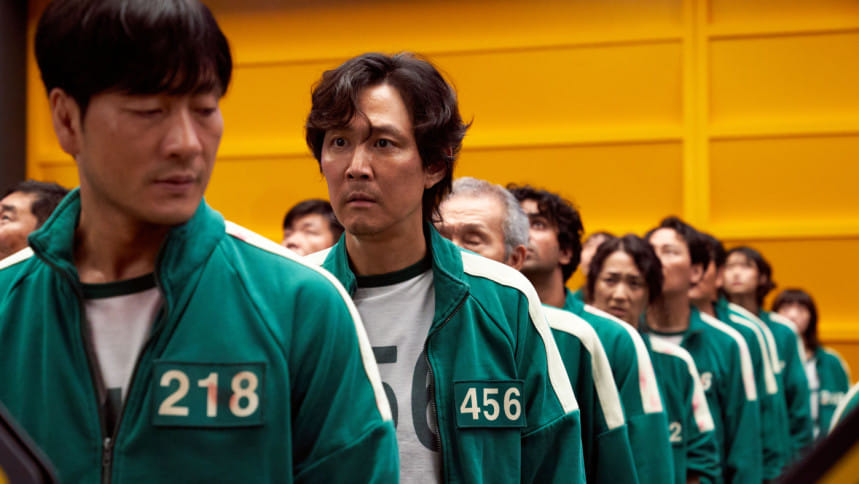What makes a great show? Survival.

If you frequent any form of social media, you know of the existence of Squid Game.
The premise of this show is based on a capitalist society which lures debt-ridden citizens to participate in a series of games, where they have to make it to the end or die trying. A prize money of 45.6 billion won awaits the winner. It is grotesque and disturbing to witness the lengths people go to in order to survive.
And so we ask, how does such a concept attract over 130 million viewers?
Fascination with survival games in media is not recent; notable examples include Japanese movie Battle Royale (2000) and The Hunger Games (2012) franchise. While they are all unique in their purposes, all these films have one thing in common -- the gamification of survival. Just like the citizens of Panem in The Hunger Games who relish in watching the reality show where the characters butcher each other to make it to the top, we can't seem to look away from the TV screen either.
First, human beings have a tendency to be strangely intrigued by bloody and violent imagery, often relating to death. This phenomenon is called "morbid curiosity", and this emotion allows the viewers to be transfixed on the disgusting scenes involving torture, death and gore. Morbid curiosity is the reason why millions of people tuned in to watch Squid Game, where economically disadvantaged people allow themselves to be put in a life-or-death situation to win the prize money.
There is also an element of rooting for a favourite character, and the suspense that draws you in and keeps you focused. The high viewership of these shows can be alluded to the innate competitiveness of human nature in a modern world. Therefore, we are left feeling a certain sense of satisfaction when our favourite character survives, even if they have done unspeakable things to get to the winning spot.
All of these movies or shows act as some form of social critique. For example, The Hunger Games was a critique of the consumerism and violence inherent in a capitalist society, as well as celebrity culture. Squid Game is a clear reflection of a system which is driven by monetary aspirations and surface-level fairness.
There is a rising popularity of movies and shows that address real-life issues and raise awareness. While this popularity has much to do with the marketing, cast, soundtrack and editing, the conversations they raise among a young audience is actually beneficial. With the help of popular media, the current generation can be more aware about socio-political issues.
Durdana Kamal likes to do things which mostly have no purpose whatsoever. Contact: [email protected]

 For all latest news, follow The Daily Star's Google News channel.
For all latest news, follow The Daily Star's Google News channel. 



Comments